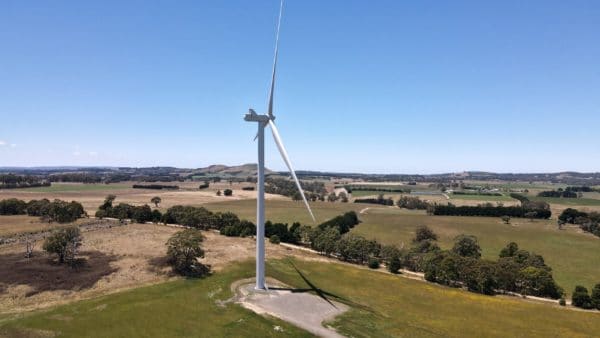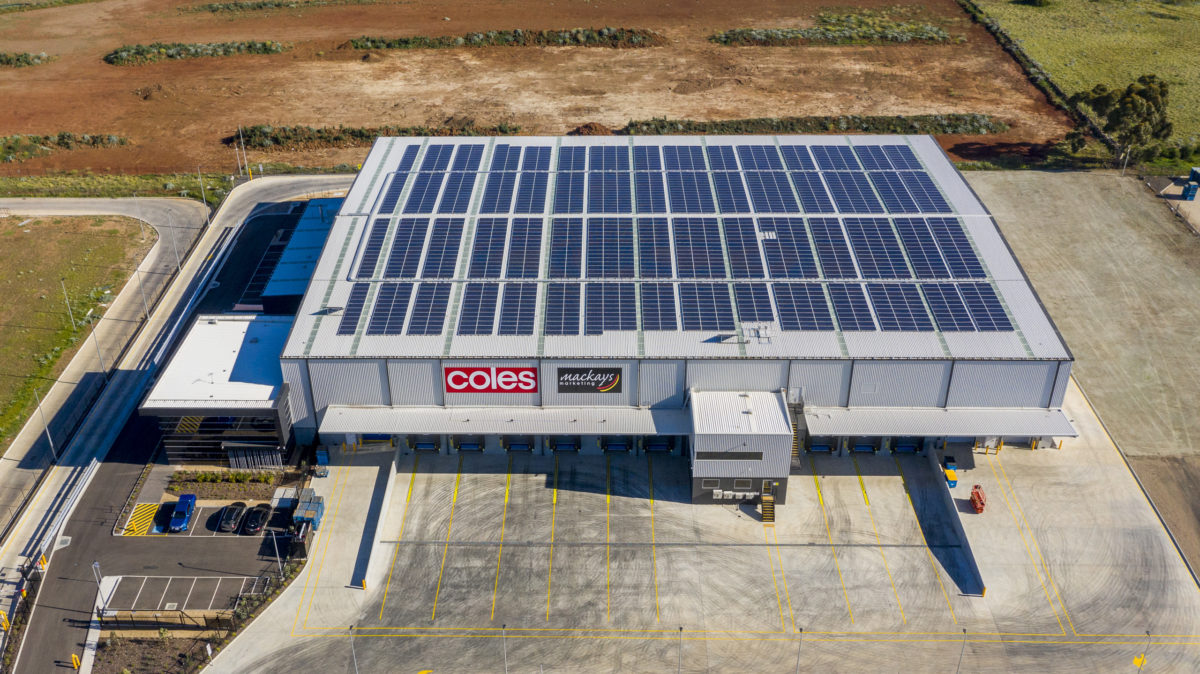Supermarket behemoth Coles announced on Friday it will be entirely powered by renewable electricity by the end of 2025, will cut its combined scope 1 and 2 greenhouse gas emissions by more than 75% by the end of 2030 and will deliver net zero greenhouse gas emissions by 2050.
The emission targets commit Coles, one of Australia’s biggest energy users, to a greenhouse gas reduction strategy that “exceeds climate change ambitions of the Paris Agreement”, chief executive Steven Cain said in a statement.
“We have already reduced Scope 1 and Scope 2 greenhouse gas emissions by 36.5% since 2009 and have been a leader in securing renewable energy,” Cain said.
“Our new targets for Scope 1 and 2 emissions commit us to an accelerated reduction in greenhouse gas emissions that exceed the climate change ambitions of the Paris Agreement and will help sustain Australia for generations to come by working together with our customers, suppliers and members of the community.”
The move means all three of Australia’s major supermarkets, including Woolworths and Aldi, will be sourcing all their electricity from renewables by 2025 at the latest. Aldi has boldly declared it will achieve the 100% renewable electricity target by the end of 2021.
Coles said it would continue to build on the progress already made towards the 100% renewable electricity target through renewable power purchase agreements (PPAs), onsite solar PV and agreements with renewable electricity generators.
Coles, Australia’s 12th biggest energy user and responsible for 1% of the country’s total electricity consumption with more than 2500 stores and support centres across the nation, already sources 10% of its electricity in New South Wales from three solar farms.
In September 2020 Coles signed a PPA with state government-owned energy generator CleanCo which will allow it to source more than 90% of its Queensland electricity requirements from renewable sources from mid 2022.

Image: WestWind Energy
Coles continued its push towards the freshly announced 100% renewable electricity target on Friday, confirming it has signed a 10-year PPA with Lal Lal Wind Farms near Ballarat, which has been exporting renewable electricity at full capacity to the Victorian grid since December 2020.
Under the agreement, Coles will purchase enough large-scale generation certificates from Lal Lal Wind Farms to increase the group’s renewable electricity to 45% of total consumption by 2023.
REenergise campaign director Lindsay Soutar, from Greenpeace Australia Pacific, welcomed Coles’ announcement and said the group’s commitment to clean energy has far-reaching implications.
“Coles making the clean energy switch will put a big dent in Australia’s greenhouse gas emissions, inspiring confidence in towns and cities across the country that even the biggest and most complex businesses can run on renewable energy,” she said.
“All three of Australia’s biggest supermarkets have now committed to 100% clean electricity, meaning the goods and services Australians use every day will soon be brought to us by the wind and sun.
“The momentum behind Australia’s business energy transition is undeniable, as company after company commits to 100% renewable electricity, and concrete action from companies like Coles puts them in front of the pack.”
This content is protected by copyright and may not be reused. If you want to cooperate with us and would like to reuse some of our content, please contact: editors@pv-magazine.com.









By submitting this form you agree to pv magazine using your data for the purposes of publishing your comment.
Your personal data will only be disclosed or otherwise transmitted to third parties for the purposes of spam filtering or if this is necessary for technical maintenance of the website. Any other transfer to third parties will not take place unless this is justified on the basis of applicable data protection regulations or if pv magazine is legally obliged to do so.
You may revoke this consent at any time with effect for the future, in which case your personal data will be deleted immediately. Otherwise, your data will be deleted if pv magazine has processed your request or the purpose of data storage is fulfilled.
Further information on data privacy can be found in our Data Protection Policy.